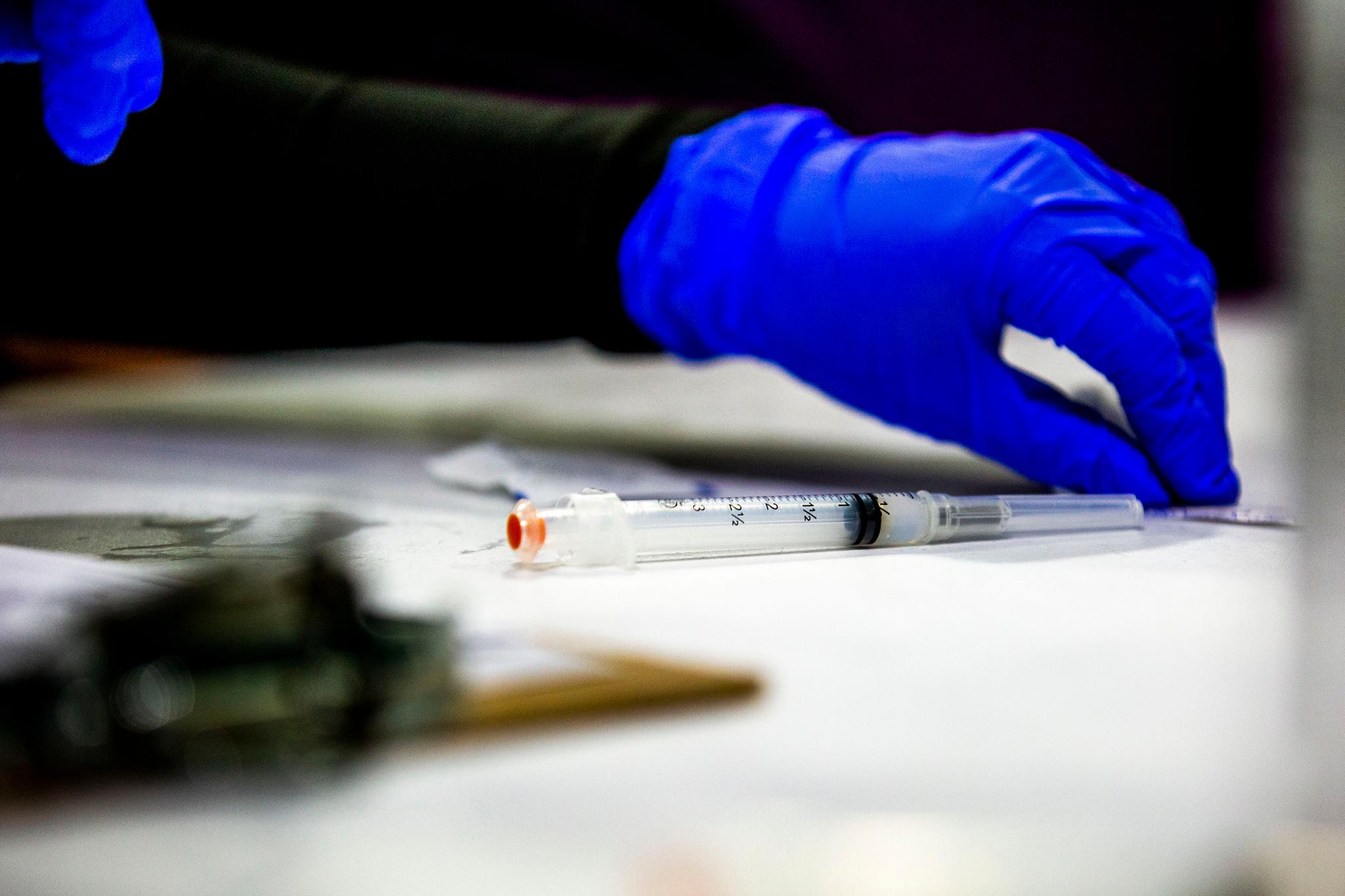
The man leading the state’s efforts to vaccinate Coloradans said injecting vaccines into the arms of those 70-years and older is “critical” to getting the state beyond the current medical emergency caused by COVID-19 and he indicated Colorado is making progress in ramping up the number of daily vaccinations.
Last week, the state vaccinated more than 100,000 people, more than twice the previous weekly high since vaccinations began five weeks ago.
At the same time, Brig. Gen. Scott Sherman, Director of the Colorado Vaccine Distribution Task Force, said a lot more remains to be done.
“We're [at] the first 500 feet of a ... tunnel that's 12 miles long,” the general said. “So we’re working on it.”
The math should be straightforward, but the number for vaccines provided to Colorado varies between federal sites, and the state's figures for how many vaccinations have been given also differ slightly from federal numbers.
The state has stopped making public the data on exactly where the shipments are going and how many doses are in them and, on top of that, a federal restriction now being swept away has made the process more complicated.
But Sherman tried to unravel it Wednesday in an interview with CPR News.
This is how many vaccines doses Colorado received, and how many have been used
So far the state has received close to 400,000 doses of Pfizer and Moderna vaccines for use on frontline healthcare workers, first responders and Coloradans 70 years old and older, according to Sherman and the federal Department of Health and Human Services.
Another 100,000 or so doses have gone to a federal program for vaccinating nursing and other long-term care staff and residents.
Through Wednesday evening, the state had immunized 209,000 people with one dose, and 44,000 with two. That would seem to leave a lot of vaccine unused.
But some of that vaccine now in Colorado is designated for use as second shots, Sherman said. After the Biden Administration said they would eliminate that delineation between inventories for first and second shots, the Trump administration followed suit, which should quickly improve the amount of vaccine available for first shots.
For now, however, Colorado still expects to get just 68,880 doses next week for first and second shots — far short of the amount the state would need to hit its goal of vaccinating 16,000 people per day or 112,000 a week, Sherman said.
The state inoculated an average of 11,000 people on Monday and Tuesday this week. That is an improvement, but if the state maintained that pace, all Coloradans would not receive even a first dose until the middle of 2022.
More vaccine is expected to become available, perhaps as soon as the end of next month as clinical trials of additional formulas are completed.
More pharmacies and other places need to sign on to actually inject the vaccines
But for now, availability isn't the issue in Colorado or the rest of the nation. Despite enormous demand, especially among seniors, there is still more vaccine than people able to find a place that will inject it, but that gap is closing, Sherman said. And the state is working to finalize additional partnerships with local healthcare providers, including clinics in diverse communities, to make availability more equitable.
Another challenge, Sherman said, is the federal pharmacy partnership, which is a national program charged with vaccinating people who live in long-term care facilities through a contract with CVS and Walgreens pharmacies.
“They’re running behind,” Sherman said. “And that’s a national problem, not a state problem.”
Sherman said the state is working specifically with CVS to “speed up” first injections at these senior facilities so that staff and residents can get their second vaccinations in a few weeks and a majority of them can be fully vaccinated by the end of February.
Frontline health care workers and staff and residents at long-term care facilities are at the top of the state’s priority list, but the state has also begun vaccinating first responders and seniors 70 and older which are next on the list.
Brig. Gen. Sherman echoed Gov. Jared Polis in saying that getting older Coloradans vaccinated will do a lot to reduce the number of fatalities in the state and take some of the pressure off hospital intensive care units.
Colorado is ahead of other states, but that's still not good enough
With about 4.2 percent of Coloradans having received at least one shot, the state ranks in the top 20 percent of the nation for efficiency in getting the vaccine distributed, according to data collected by the New York Times. But only about a third of available vaccine nationwide had been injected through Wednesday afternoon.
Outperforming states that have only utilized 20 or 30 percent of their allotment to vaccinate 2 percent of their populations would not seem worthy of bragging.
Colorado does face several of the same challenges as other states, including a slowdown in distribution over the holidays, and exhaustion among those who must give the injections.
“I think ... health care providers after nine months of COVID are exhausted,” Sherman said. “I can see it in their eyes.”
He said the good news is the state was able to ramp up vaccinations considerably in the last week and he said much of the state’s ability to administer vaccines in the coming weeks will depend on its allotment from the federal government which is determined based on the different populations the state is vaccinating at any one time.
Polis indicated Tuesday he would add Coloradans 65-69 to the group getting prioritized for vaccinations as soon as the state’s vaccine supply and distribution improved. Right now, they would come in the next phase of the state’s plan.








